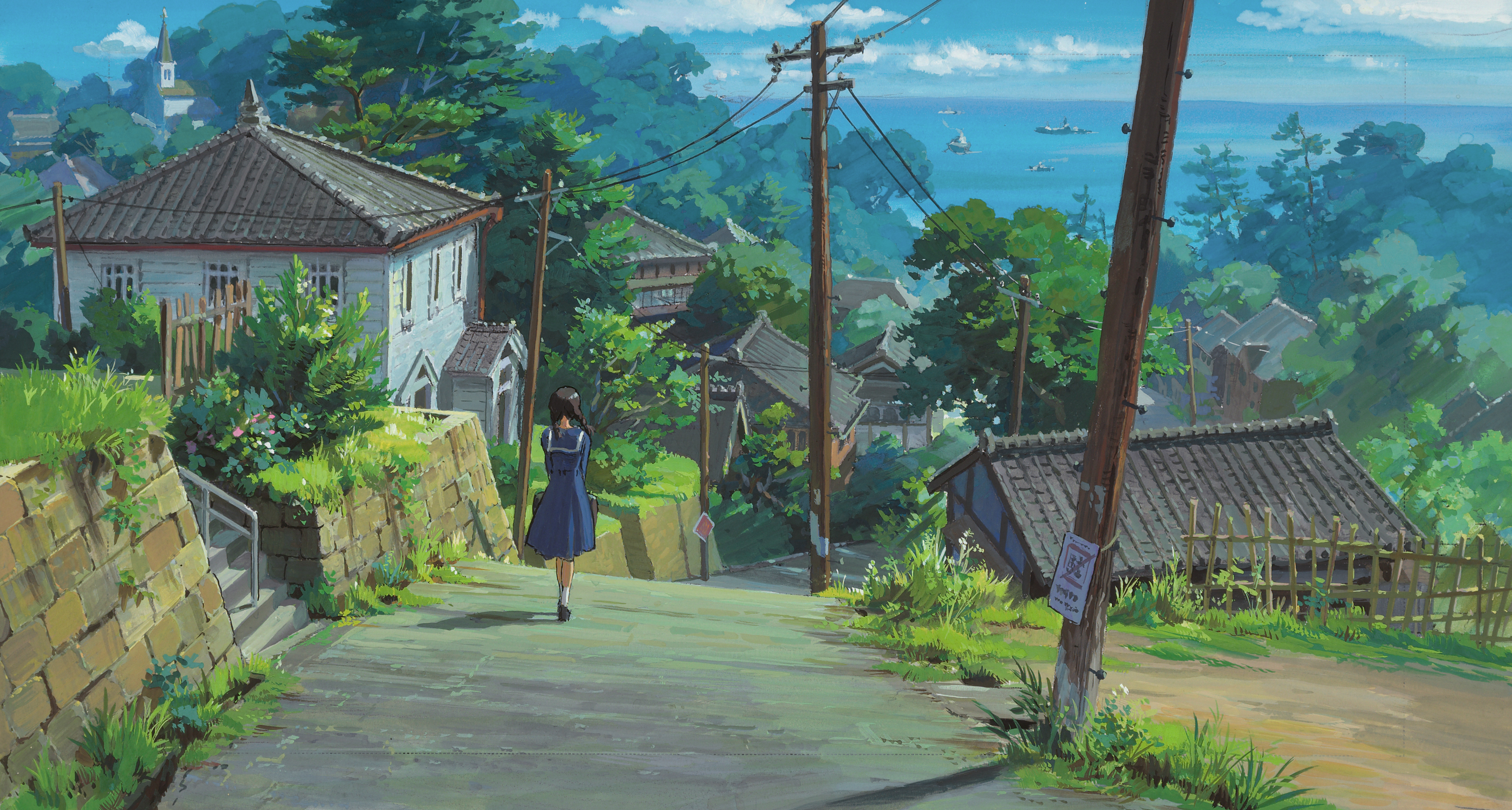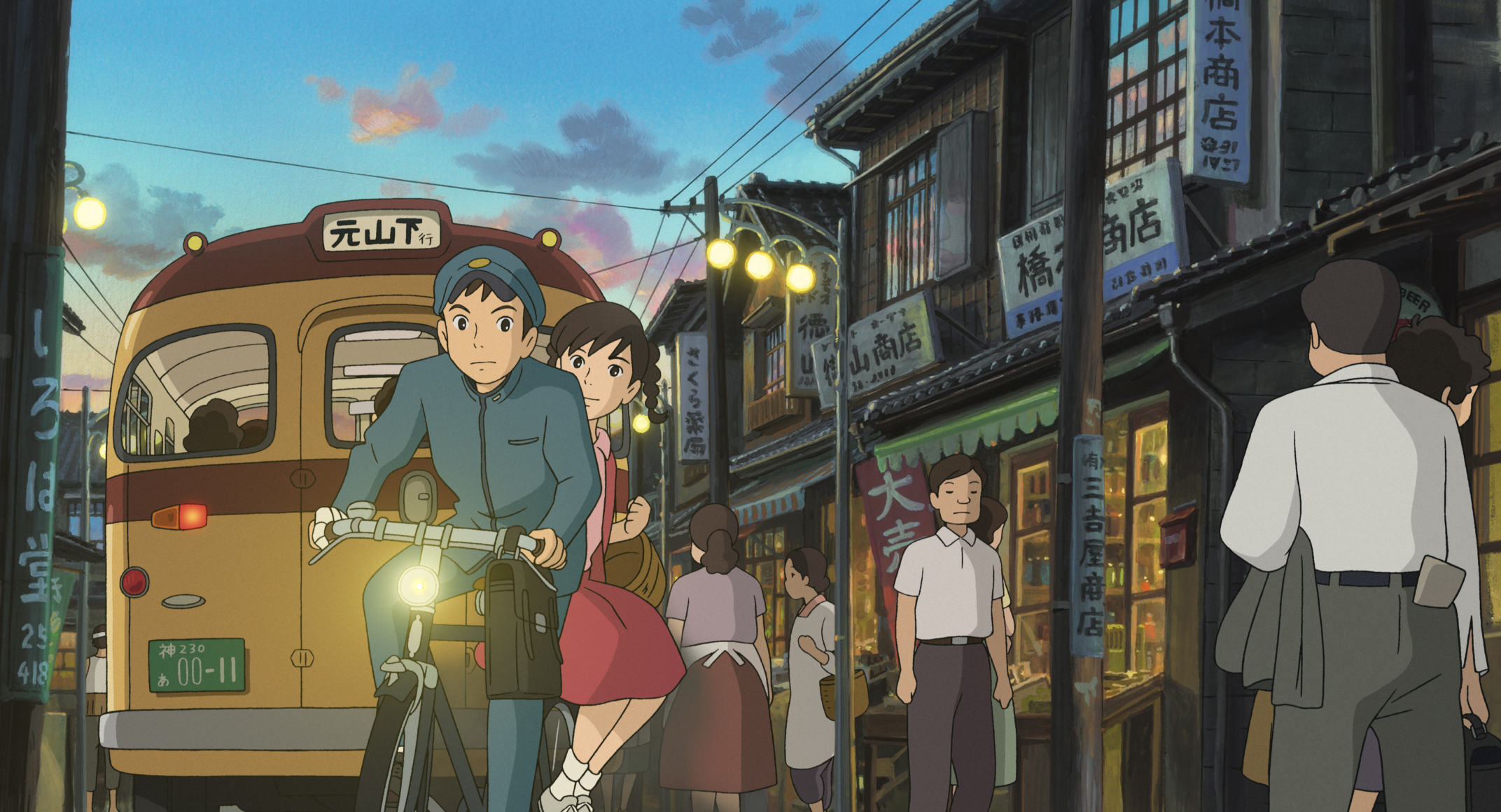How I ended up writing this review is somewhat of a funny story. From Up on Poppy Hill is the latest feature film from Studio Ghibli. When it was announced it would be released here in the U.S., you can bet that my ears perked up! Studio Ghibli is responsible for famous Japanese animated features such as Princess Mononoke, Howl’s Moving Castle, and Spirited Away (so far the only Japanese animation to win an Oscar for Best Animated Feature).
This is just a few of the classics to come out from this studio, and most of them are definitely worth watching. Notably, the majority was directed by the infamous Hayao Miyazaki, but with From Up on Poppy Hill his son, Goro Miyazaki, was the one in the director’s chair for a second time. This has sparked some negative publicity as his first foray into animation with Tales from Earthsea was not well received. Of course, it’s not easy when the poor fellow has the gargantuan reputation of his father to live up to.

Despite this, I know many of my friends were interested in seeing this film. However, I had one friend caution us not to set our standards too high. He said that the characters were un-relatable and that the overall plot was very plain, stale, and boring. He suggested that I should judge it for myself, so one day out of boredom I did watch it and fell in love with it. My baffled friend wanted to know why, so what you’re about to read is taken from my response to his question.
Unlike my friend and others who share his point of view, I was able to relate to the characters. It helps that my father was in the U.S. Coast Guard, so I can easily relate to the theme of flag signals, boats, fathers out at sea, and etc. I think what throws most people off is that this anime is largely based on a re-imagining of real life. As such, the film features subtleties that are not necessarily found in animation, particularly in the characters’ development and how they express their emotions. Due to its animated nature though, it may be seen as stale or lacking magic.
I do think the film achieved things as an animated feature that couldn’t have succeeded as a live-action flick, and I’m referring to the “re-imagining” part here. Yokohama, where most of the film takes place, was not drawn exactly as it was; it was from the perspective of the characters (hence, a livelier more colorful city with soft glowing lights and exaggerated messes). It’s all drawn to be like a warm memory such as someone reminiscing on the good times of their past. The soundtrack also contributed greatly to the feelings of nostalgia this film generates. This was a great perspective to use for addressing the problems facing the characters, especially since it was also symbolic of the problems Japan was facing during this era. The Japan of 1963, the backdrop of the whole plot, was not chosen by accident.

It was a great transitional period for Japan, who was still recovering from the horrible aftermath of WWII. They were working towards a peaceful and brighter future. The 1964 Olympics was very symbolic of Japan’s re-emergence on the world stage as a country of perseverance, peace, and prosperity.
Should we forget the old while pushing for new change? The classic struggle between the past and future is something we deal with as humans every day and is particularly noteworthy during this moment in Japan’s history. This is the dilemma our protagonists, Umi and Shun, must face in saving both the school’s historic clubhouse and their own relationship.
I see this film as a good first step for Goro Miyazaki and my advice is same that my friend gave to me: go see it and decide for yourself. It lacks the magic found in most Studio Ghibli films. However, it has its own niche as the recalling of a Japan that used to exist, which is almost like a fairy tale itself. Starting today, Poppy Hill will delight Atlanta audiences with theatrical showings at the Landmark Midtown Art Cinema.